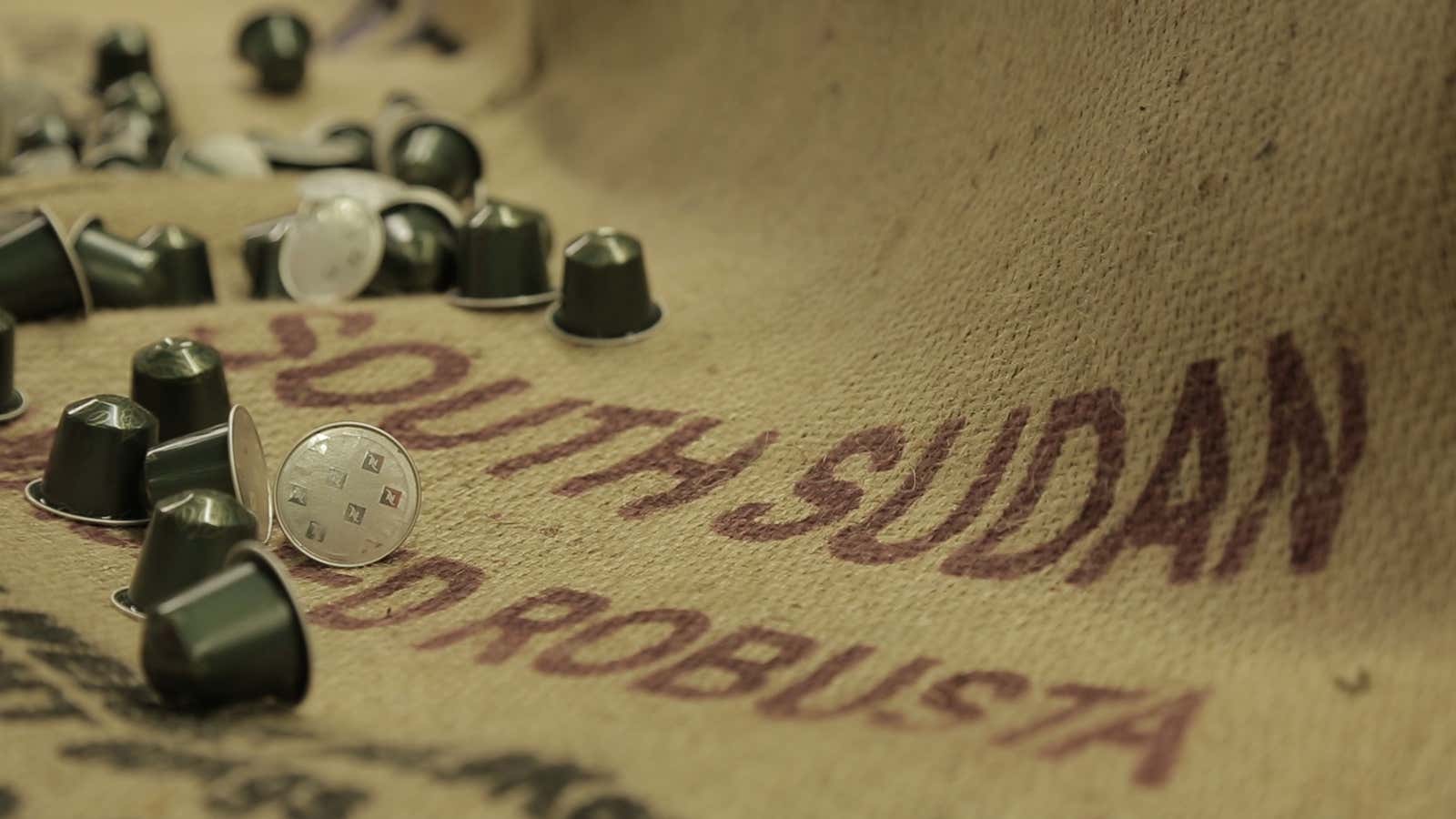This post has been corrected.
George Clooney seems to have limitless energy for the world’s youngest nation, South Sudan. From his outspokenness about the Darfur conflict to his launching a project to track human-rights abuses in the region, Clooney’s use of his Hollywood star power on behalf of South Sudan has not always been well-received, but it is not about to stop. He now wants to help promote coffee as a means to diversify the oil-rich country’s economy.
Today (Oct. 7), Nespresso, the world’s biggest producer of single-serve coffee and coffee machines, announced the launch of its first ever coffee to be exported from the country. Clooney, a spokesman for Nespresso in Europe, convinced the Swiss-based company to invest in reviving South Sudan’s coffee-production industry, which suffered a blow during decades of civil war.
Since 2011, Nespresso has been working with TechnoServe, a US-headquartered NGO, to train more than 500 coffee farmers, replant trees, and set up mills in the Yei region of South Sudan.
Four years later, the coffee, called Suluja ti South Sudan—meaning “beginning of South Sudan” in Kakwa, a language indigenous to the region—is now ready for export. France is the first country that will get a taste of it, starting this month.
Nespresso says it will spend $2.6 million (2.5 million Swiss Francs) in the coming years to further the coffee’s development as a commercial product and to expand the endeavor to include several thousand farmers by 2020. While it does not expect quick returns—a payoff is likely to take many years to materialize—the company says it “sees this as a long-term investment in helping to revive the coffee industry in South Sudan.”
TechnoServe CEO William Warshauer told Bloomberg he believes coffee “can become the second-biggest export from South Sudan after oil. Having said that, we should recognize that it’s still the early days and volumes are very small and the political situation very fragile.”
Oil accounts for 99.82% of exports from South Sudan, according to the Observatory of Economic Complexity, a trade-data visualization site created at the MIT Media Lab. Its dependency makes it especially vulnerable to shocks in energy prices.
According to Nespresso (pdf, pg. 5), South Sudan is “the only place in the world where wild coffee, Arabica and Robusta, grows. “With its economy expected to contract by 7.5% this year, the east African country needs to diversify its exports to raise its non-oil revenue. Coffee may be a step in the right direction.
Correction: Nespresso’s comment on South Sudan being “the only place in the world where wild coffee, Arabic and Robusta grows” was not properly attributed to the company in the original post. The error is regretted.
